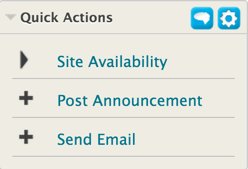
Have you ever wanted to do something in NILE, but been unsure which tool to use or how to do it? If so, then this breakdown of the core technologies that comprise NILE may be of help!
The core NILE functionality has been broken down into five main categories:
- content
- collaboration
- assessment
- information
- management
Depending on the task in hand, have a look at the appropriate column and see which tools and applications may be relevant. Each category is mapped to the UKPSF to assist tutors in the process of submitting an HEA Fellowship application.
Sources of Help: There are three main ways in which tutors can get help with using these tools:
- Attend the ‘official’ LearnTech training sessions
- Access our detailed help guides and resources via the NEW Help tab in NILE
- Contact your dedicated school Learning Technologist for 1:1 support.
We hope you find this useful. If you think anything is missing, please let us know: learntech@northampton.ac.uk
The Learning Technology team have had numerous requests for a way to send an announcement out to more than one site at the same time. We have acted on this feedback and have made a tool available to you which enables the management of announcements. There are a couple of added bonuses too! You can also send an email to multiple sites, and make your sites available to students – without having to go into each site individually!
 Did you know that last year 16,189 users logged into NILE 1.7 million times and viewed pages in NILE 26.8 million times?
Did you know that last year 16,189 users logged into NILE 1.7 million times and viewed pages in NILE 26.8 million times?
Did you know that the iNorthampton app has been downloaded 15,667 times?
Did you know that NILE is available and working 99.97% of the time?
This, and other information about NILE and the Learning Technology Team is available on our infographic poster.
Click on the link below to download the PDF, or click on the image on the right to view the image full size.
On the 10th February over 40 staff and 20 students visited the Park Library Tpod to try out the Smart Table which we had on loan and also take the opportunity to talk to staff representing LearnTech, CfAP, Academic Librarians and Resource Development.
This was the first time that we had arranged for a Smart Table at Northampton.  It appears that whilst the table has been focused so far at the primary education market (a range of case studies are available) – there may be some niche applications for HE which were being discussed.
It appears that whilst the table has been focused so far at the primary education market (a range of case studies are available) – there may be some niche applications for HE which were being discussed.
We are currently assessing the event to assist us with planning follow-up sessions.
You probably noticed a nice big welcome if you recently logged into NILE, as we’ve switched on a new social tool.
 The information screen you’ll see when you log in explains what’s new and how to set up your profile (or opt to “do it later”), but we thought it would be useful to explain what it all means.
The information screen you’ll see when you log in explains what’s new and how to set up your profile (or opt to “do it later”), but we thought it would be useful to explain what it all means.
What are the new Cloud Profile Tools in NILE?
Cloud Profiles are a new set of cloud-based features available in NILE, that consist of basic Profiles called Profile Cards, the People tool, and enhancements to the Posts tool.
Using your Profile Card you can personalise your online presence in Blackboard by sharing a photo of yourself, information about your area of study/work, and an “about me” description.
The tool is optional, so if you don’t want to create a profile just yet, that’s fine, you’ll still be able to use the system. If you do complete your profile, your information will be saved to the cloud (on Blackboard’s servers – the product behind NILE) and your picture will appear in various places throughout NILE, such as Discussion Boards, Blogs, Journals, and Wikis. When someone hovers over this picture, your profile card will automatically pop-up so they can learn more about you.
In some areas a small thumbnail is used whilst in other areas a large version is displayed – so it’s worth choosing a good quality likeness of yourself:

Your profile can appear in the new People Tool – a tool to help students, teaching staff and support staff put a face to your name, and when Social Profiles are enabled, connect with you. There are privacy options, so you can choose whether you want to keep your profile hidden, make it available to just the people who are enrolled into the same courses as you, or make it available to everyone at Northampton.
Your profile can also appear in the Posts page which displays the latest discussion, blog and wiki activity taking place in the courses you are enrolled in.
If you want to create a Profile Card:
You can edit your Blackboard profile from the Welcome screen – click Facebook, Twitter or ‘I’ll update it myself’. If you select ‘I’ll do it later’, you won’t see the welcome screen next time you log in – so you’ll need to click the profile icon in the global navigation bar (top right).
When you first create your profile, you have the option to start by pulling in information from Facebook or Twitter – such as your profile picture or the “about me” description. If you do choose to do this, you must make sure the information you pull in to share is suitable for this professional academic environment. Also be mindful of your own safety and don’t share anything too personal. We recommend you require others’ request permission to follow you.

You can also choose to add a link to your Facebook or Twitter profiles on your Blackboard Profile Card to help people who view your profile to connect with you outside of the Blackboard environment. Again this is entirely optional. If you don’t use these services, or want to keep them separate from your work at the University that is ok – you don’t need to link to these social networks for profiles to work.
You should note that if you use Twitter or Facebook to import details then a link will be made to your Twitter or Facebook homepage – you may wish to break this link after importing or change your security to prevent people viewing details which should be hidden!
Finally, you will be asked to add a personal email address to verify your account. This is because by creating a Cloud Profile, your information will be saved to Blackboard servers and you’ll have the option to use the same profile on other Blackboard platforms, perhaps if you take a MOOC on Coursesites, or work at another Institution. We recommend that you do not display your email address on your profile card. Staff and students at the University will be able to contact you via your Northampton email address should they need to.
Spaces
In addition to all of the functionality added above, we have also enable the Cloud Spaces feature in NILE. You may access this from the NILE Global Navigation at the top right of your NILE screen.
Spaces are simple social areas that anyone can set up. They are not connected to a course or module area, and can even include people from other institutions that use Blackboard Spaces. Students working on a group project might want to set up a Space to share links to resources and thoughts with each other. Perhaps a group with a niche interest might want to connect with other like-minded people from other institutions.
Learn More
If you want to learn more before you decide whether to use these features you can check out the videos and information pages provided by Blackboard:
- Blackboard Quick Hit Video – Profiles
- Blackboard Help Website – Profiles
- Blackboard Help Website – Spaces
- Blackboard Help Website – Social Learning Tools FAQs
- Blackboard – Privacy Policy
We are really interested in how you find this new tools. Please contact the LearnTech team if you have any questions.
Last December, Economics Lecturer at NBS, Dr Kevin Deane, took the unusual step of abandoning 4 weeks of his timetabled lecture programme and replacing it with a group exercise culminating in an academic poster exhibition (see this blog posting for more details!)
The exhibition was a real success, particularly for a first-time event, as evidenced by the comments from the students and other NBS staff who attended the exhibition. That said, Kevin has some definite changes and improvements he would introduce next time around. But, in these days of NSS scores and working to improve the student experience, the big question to be answered is … what did the students think?
Generally, their reflections mirrored those of Kevin himself. Apart from an appreciation of the refreshments (!) the following comments are worth mentioning in response to the question of what was good about the task:
- One student responded by saying that the good thing was the “big range of information exchanged and displayed, very insightful. Food was good, getting tutors and guests involved.”
- Another enjoyed the fact that they didn’t have the pressure of an assessed assignment.
- “People did them relatively well. Rewards were good incentive”.
- Another student commented that it “was a great insight into a variety of economists. It provided me with a better understanding of these economists and their philosophies.”
There were some technical hitches on the day of the exhibition itself. In particular, Kevin had been expecting the room to be ready when he and his students arrived, but an error in communication meant that an hour was lost having to set up the exhibition boards. This did have a significant knock-on effect for students as the first hour of the session was lost. This had been scheduled for a student-student presentation of each of the posters, which would have provided the primary opportunity for students to learn about those other economists being studied by their peers.
The following student comments on what could be done differently/better mirror Kevin’s own reflections. Specifically, the students were keen that copies of the other posters were circulated – something Kevin had already planned to do. This is of particular importance pedagogically – where students are creating and generating module content which forms one jigsaw piece of the whole picture, ensuring that each student has access to the full and final picture is essential. Another comment was that it was rightly considered unfair that some students were asked to produce posters on economists that had already been studied in class whereas others were starting from scratch. Looking ahead, Kevin would ensure this didn’t happen again and recognises that it was purely circumstantial, arising from the decision to move away from lecturing to the poster exhibition after the lectures had begun. In itself, this was engendered by student feedback indicating that the lecture approach to this topic was dry and uninteresting.
One final comment worth addressing directly was that students considered the poster to be “too much extra, [it was] not part of our course.” This feedback reflected a failure to appreciate that this poster wasn’t actually ‘extra’ work per se, rather a change in the way the module content was being taught. In future, Kevin would draw attention to the fact that the requirements of producing a poster are no more onerous in terms of the expected study time than indicated in the module spec: 4 students per group x 3 hours per week of independent study x 3 weeks = 36 student study hours per poster.
Other negative comments included the following:
- It was a lot of work, for no obvious reward in terms of assessment.
- Lack of assessment meant no incentive to produce high quality.
- Doing a poster on one subject was limiting.
- Some people didn’t even go.
Having allowed time for both his personal and the students reflections, the following changes would, Kevin believes, improve the exercise next time around:
- Ensuring that the dedicated time for student-student presentations is preserved to ensure that all students receive the benefit of the work done by other groups and learn about all the economists studied in the module
- Explicitly recognise the focus that students place on assessment and grades and therefore turn the task into the first assessment for the module and run it earlier in the academic year when students were not under pressure to complete assessment tasks for other modules
- Ensure that the key points are captured in a summary ‘timeline’ lecture that places them all in context.
Probably the biggest objection he has to overcome is the idea that this task placed an additional burden on students and this really boils down to managing their expectations more explicitly. A clearer explanation and on-going reminder that the poster itself should be the final product of 36 student study hours (9 per student) would go a long way to removing this objection and engendering in students the realisation that this level of work and time investment is, ultimately, what they are at University for!
 On the 10th February from 11am till 2pm, representatives from Library and Learning Services (LearnTech, Academic Librarians, CfAP and Collections) will be available in the Park Library Tpod. You may turn up at any point between these times and stay for as long as you wish.
On the 10th February from 11am till 2pm, representatives from Library and Learning Services (LearnTech, Academic Librarians, CfAP and Collections) will be available in the Park Library Tpod. You may turn up at any point between these times and stay for as long as you wish.
The event is based around an open format where you will be able to talk to representatives about any of the items raised in the recent staff School Technology survey such as:
- Lecture Capture using Panopto
- Video streaming using Kaltura
- Enhanced features in NILE (e.g. Groups / Collaborative Tools)
- Reading lists using Talis Aspire
- Understanding digitising resources
Academic Librarians will be on hand to offer support and answer your questions about Talis Aspire, the Skills Hub, NELSON and subject specialist databases.
You will also be able to see (and have a go) on the demonstration Smart Table which will be available during this time.
Coffee and tea will be available during this time.
If you would like to attend between these times then please signup
The LearnTech team have arranged for a Smart Table to be demonstrated on the 10th February in the Park Library Tpod between 11am and 2pm.
If you would like to attend between these times then please signup
“The SMART Table is predominantly designed for the Early Years and Primary Market, hence the vast majority of Apps and software is aimed at these segments. The Table is used by the NHS, in libraries and museums, but again, the content is very much the same as what is available now.
Outside of the SMART Table content, the Table is in effect a Windows 7 dual touch PC and in this mode can be used in the same way as any PC ’
In addition to the above we will also have a CleverTouch Fusion Table on loan between 8 – 15th April and will be running further events around this. Please indicate when you would like to see this table by completing the signup form
The summary of the 2014 mobile survey has now been published and we are really grateful to the 444 respondents who took their time to complete this. As part of the survey, we gave staff and students the opportunity to add comments and make suggestions about the University’s mobile provision and specifically about developments that need to be made.
Device support
For the first time Android has slightly overtaken Apple in device ownership. This is inline with Gartner’s predictions and findings. Blackberry ownership is still in decline, whilst Windows phone ownership has increased to 6.6% of respondents. The web based versions of iNorthampton complement the app for those that are unable to download it onto their device. A dedicated Windows app is being requested by the user community, however there is no timescale for approval or release, yet.
 iPad users have requested a dedicated version of iNorthampton which complements the NILE (Blackboard Learn) download. In last year’s report we stated that this would be available in 2013, however it is still in development and will hopefully be released before the end of the 13/14 academic year.
iPad users have requested a dedicated version of iNorthampton which complements the NILE (Blackboard Learn) download. In last year’s report we stated that this would be available in 2013, however it is still in development and will hopefully be released before the end of the 13/14 academic year.
Wireless
IT Services are responsible for the site wide implementation and maintenance of the campus wireless provision and they have now successfully implemented the educational wireless service Eduroam. Eduroam (education roaming) is the secure, world-wide roaming access service developed for the international research and education community. Just connect to Eduroam wireless from your mobile device and enter your Northampton username (in the format username@northampton.ac.uk) and password (which is normally used to log in to Northampton machines). Choosing to connect to Eduroam when on campus will give you a dedicated connection to the Wifi and you will no longer need to authenticate through a browser.
iNorthampton
Use of the iNorthampton app has increased with NILE, Library and Timetables being the top three tools within it for staff and students.
When asked about functionality that participants thought would be useful to include in the app the most common answer referred to the Library tool. Users would like to be able to renew books and check their account details. Other comments included requests for more detailed maps (e.g. room finder, opening times), access to email and other University services and more use of texting.
We are working on the new version of the app which will incorporate some of the functionality being requested. Unfortunately innovative development of the app has been slowed significantly by the changes made to the web site, and the compatibility between that platform and the mobile development platform. This has resulted in the app remaining stagnant for a much longer period than we are happy with.
Other comments
“Links to bus timetables, email, and other University services”
Northamptonshire County Council have their own app (called NCC) for Android and iPhone, which was developed by staff here at the University. This already has live bus timetables, so we’d recommend you use this if you can. They also supply a text service to send bus times to your mobile.
We took the decision not to include email, as smartphones already include a tool to integrate this. We will be providing more guidance on how to setup email on devices in the next release.
Where possible we will include links to University Services, but we will be maintaining a balance between iNorthampton just being full of links to the main University site and actually displaying data within the app itself. For example, we are working closely with Student Services to ensure that information pertinent to living in halls and navigating around campus is included in current, or bespoke functionality.
“More use of texting for institutional messages?”
The Learning Technology team are currently investigating text messages through NILE. This will be phased in during the 2013/2014 academic year.
If you would have any other comments on iNorthampton then please mail LearnTech@northampton.ac.uk
WizIQ (the tool which allows for the creation of a virtual classroom) has been upgraded on NILE. The upgrade will allow for:
1. Scheduling recurring classes.
2. Cancel recurring class instances.
3. View recording.
4. Delete Recording.
5. View attendance report.
6. Download attendance report.
If you are interested in knowing more about WizIQ then please contact the Learning Technology Team.
Recent Posts
- Blackboard Upgrade – January 2026
- Spotlight on Excellence: Bringing AI Conversations into Management Learning
- Blackboard Upgrade – December 2025
- Preparing for your Physiotherapy Apprenticeship Programme (PREP-PAP) by Fiona Barrett and Anna Smith
- Blackboard Upgrade – November 2025
- Fix Your Content Day 2025
- Blackboard Upgrade – October 2025
- Blackboard Upgrade – September 2025
- The potential student benefits of staying engaged with learning and teaching material
- LearnTech Symposium 2025
Tags
ABL Practitioner Stories Academic Skills Accessibility Active Blended Learning (ABL) ADE AI Artificial Intelligence Assessment Design Assessment Tools Blackboard Blackboard Learn Blackboard Upgrade Blended Learning Blogs CAIeRO Collaborate Collaboration Distance Learning Feedback FHES Flipped Learning iNorthampton iPad Kaltura Learner Experience MALT Mobile Newsletter NILE NILE Ultra Outside the box Panopto Presentations Quality Reflection SHED Submitting and Grading Electronically (SaGE) Turnitin Ultra Ultra Upgrade Update Updates Video Waterside XerteArchives
Site Admin







